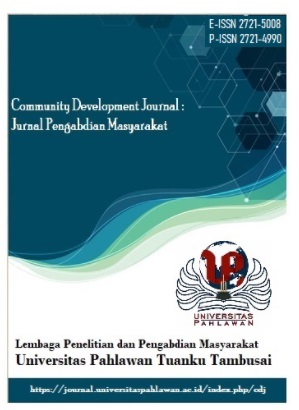STUDENTS’ PERSPECTIVES OF ONLINE ENGLISH LEARNING APPLICATIONS USE IN ENHANCING THEIR SPEAKING ABILITY AT SYSTEM INFORMATION DEPARTMENT
DOI:
https://doi.org/10.31004/jrpp.v6i1.17483Keywords:
System Information Students, Online English Apps, Language Learning, Speaking AbilityAbstract
One of the factors that influenced in language learning was digital or online applications use. Nowdays, students are commonly use their devices to enhance their language ability, especially in speaking ability. This research was conducted at English class of System Information Department students, Institute of Science and Technology of Padang Lawas Utara. First semester of System Information Department students were the respondents of this research. The survey investigated the following aspects, namely: preferences, actual use, ease of use, experience, and learning opportunities. Moreover, this research also investigated the students to share their positive and negative benefits of online English applications use in the classroom. There were 52 students completed the survey. The results showed that most of students viewed positively responding to the potential utilization and integration of online English applications use. However, there are some students expressed that the use of online English applications in language learning, especially to enhance their speaking ability did not give an efficient or effective method and did not get significant effect on their speaking ability in language learning class.References
Bourgonjon, J., Valcke, M., Soetaert, R., & Schellens, T. (2010). Students’ perceptions about the use of video games in the classroom. Computers & Education, 54, 1145-1156. Retrieved from http://doi.org/10.1016/j.compedu.2009.10.022.
Carless, D. (2012). Task-based language teaching in Confusician-heritage settings: Prospects and challenges. On Task, 2(1), 4-8. Retrieved from http://www.tb;sig.org/ontask.
Newzoo. (2015, May 18). Global Reports: US and China take half of $113bn games market in 2018. Retrieved from http://newzoo.com/insights/us-and-china-take-half-of-113bn-games-market-in-2018/#hxGv7yU4r8u56qrE.99
Park, S.Y., Nam, M.W., & Cha, S. B. (2012). University students’ behavioral intention to use mobile learning: Evaluating the technology acceptance model. British Journal of Educational Technology, 43(4), 592-602. Retrieved from http://doi.org/10.1111/j.1467-8535.2011.01229.x
Peterson, M. (2011). Digital gaming and second language development: Japanese learners’ interaction in an MMORPG. Digital Culture & Education, 3(1), 56-73. Retrieved from http://www.digitalcultureandeducation.com/cms/wp-content/uploads/2011/04/dce1048_peterson_2011.pdf
Respati, H. R., & Nur, M. R. O. (2019). Word of The Day on Dictionary.com: How Future Teachers Help Students’ in Vocabulary Learning?. Proceeding ELLiC (English Language and Literature International Conference), 3.
Sanchez, R. A., & Hueros, A. D. (2010). Motivatiobal factors that influence than acceptance of Moodle using TAM. Computers in Human Behavior, 26(6), 1632-1640. Retrieved from http://doi.org/10.1016/j.chb.2010.06.011
Wang, F., & Burton, J.K. (2013). Second life education: A review of publications from its lauch to 2011. British Journal of Educational Technology, 44(3), 357-371. Retrieved from http://doi.org/10.1111/j.1467-8535.2012.01334.x
Yulianto, Y., & Nur, M. R. O. (2018). Cyber World Literature: Digital National Preference in Reading Online Stories. Undergraduate National Conference, Sanata Dharma University, Yogyakarta.
Zhang, H., Song, W., & Burston, J. (2011). Reexamining the effectiveness of vocabulary learning via mobile phones. The Turkish Online Journal of Educational Technology, 10(3), 203–214.*Zheng, B., Warschauer, M., & Farkas, G. (2013). Digital writing and diversity: The effects of school laptop programs on literacy processes and outcomes. Journal of Educational Computing Research, 48(3), 267–299.
Zheng, B., Warschauer, M., & Farkas, G. (2013). Digital writing and diversity: The effects of school laptop programs on literacy processes and outcomes. Journal of Educational Computing Research, 48(3), 267–299.
Zurita, G., & Nussbaum, M. (2004a). Computer supported collaborative learning using wirelessly interconnected handheld computers. Computers & Education, 42(3), 289–314.
Zurita, G., & Nussbaum, M. (2004b). A constructivist mobile learning environment supported by a wireless handheld network. Journal of Computer Assisted Learning, 20(4), 235–243.
Zurita, G., & Nussbaum, M. (2007). A conceptual framework based on activity theory for mobile CSCL. British Journal of Educational Technology, 38(2), 211–235.
Downloads
Published
How to Cite
Issue
Section
License
Copyright (c) 2023 Rina Irawan Nasution

This work is licensed under a Creative Commons Attribution-ShareAlike 4.0 International License.







